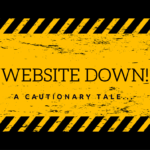It can be difficult to manage anyone if you have no knowledge or experience of his/her field. The most effective leaders employ specialists in their relative fields and empower them to deliver their various areas of expertise, but even the most experienced people need a framework and support.
So how can you maximise the relationship with your PR or social media agencies and/or freelancers?
- Give a clear brief
How can you expect your agency to deliver tangible results to your business if they’re not aware of your company business plan and objectives? Make sure they know what your overall business strategy is, so that your communications can support this and contribute to actual business results. Work with the team to set realistic timeframes and KPI’s, and be very clear about your expectations.
- Listen to their advice
Presumably you have hired external support because you believe they have the skills and knowledge to do the job – so make sure you listen and take note of their feedback and recommendations. Just because you read magazines and newspapers, and use social media, it doesn’t mean you know how to maximize these channels professionally.
- Have a budget
Contrary to popular opinion, PR and social media is not free marketing or advertising. To have an effective communications strategy, whether online or offline, you need to invest in a monitoring service, social media management tools, a media database, and potentially events, gifts and/or sponsored content and influencer outreach. Speak to the agency at the outset to understand what additional costs might be needed, and ensure you are providing appropriate resource for the expected deliverables.
- Measure results
Establish measurement criteria at the outset. Traditionally PR was always measured by the number of clips and AVE (Advertising Value Equivalent) of this media coverage – ie what it would cost you to take out an ad of that size. However, the industry is moving away from this standard because it does not reflect business results. If the clip is two pages about Dubai, with a one-line mention of your company at the end, is it really worth two pages of advertising? Does a half-page interview with you, giving all of your company key messages, hold the same value as a half-page interview/round table that features you and your biggest competitor together? Is a full-page review that has some negativity or apathy, worth the same as a full-page glowing recommendation?
In the same way, social media measurement has changed from initially being all about the number of followers, which people, soon realized wasn’t indicative of good relevant content (followers can easily be increased if they do not have to be targeted potential customers). Now people tend to look at the amount of engagement, but this only shows whether your content is well received – are the engagements from potential customers? Have any of those engaging actually translated into business results, sales or enquiries? On their own these metrics cannot measure the success of a strategic social media campaign.
Think about establishing qualitative measurements rather than quantitative. How many of your key messages are covered in every article or post from others? What percentage of your media clips/social media mentions are positive/negative/neutral? Do you have a top tier media or influencer target list that you want to increase mentions from, rather than just increasing the number of mentions in total? Have you seen an increase in clicks on your website, email enquiries or sales as a result of your communications?
- Share business results
If your communication goals are linked to your business strategy, you agency needs to know how the business is faring. This should be one of the key modes of measuring the efficacy of your PR. Unfortunately silos within the business often mean that external agencies don’t get this data, which limits their ability to develop an effective strategy. Ideally your agency should receive the website statistics, and data on enquiries and sales on a regular basis. This will enable them to see if their communications are driving action; which communications have been most effective in getting attention and driving traffic, and where any stumbling blocks may be.
- Review data and be adaptable
Read their reports! Make sure you know what is happening in the business and in the community/industry in general. If you’re not getting a chance to get through reports from your agency on a regular basis, ask for a regular top-line summary instead. Use the data you are collecting to regularly review and refresh the communications strategy. In this day and age, the media and social media landscape is changing on a daily basis, and you need to ensure you are able to adapt. You can’t set a strategy for the year and expect it to stay exactly the same for those twelve months.
- Be available
Your communication should be two-way – sharing news, information and insights and pitching ideas to media and influencers, but at the same time, if your communications are working, you should be receiving requests from media for comment and input on hot topics and trends. and comments from the general public on your social media pages. When there is breaking news (ie new legislation is announced), people will be looking for immediate comment. Your agency needs to be able to pick up the phone to call you, and ensure that they can get a comment/response, often within the hour
- Meet face to face on a regular basis
Bearing in mind the previous points about reviewing results and updates, and just generally in order to maintain a good relationship, make sure you meet in person at least once a month. Get to know your people, be transparent and honest about the business, and ensure there is open dialogue. Not only will this be beneficial for the business, it will also ensure a much smoother working relationship.
Your communications team is such a critical part of your business, responsible for promoting and protecting your brand reputation, so the relationship you have with them is incredibly important. It can be hard to measure results and activity in tangible numbers, and there are so many variables that can affect whether news gets published or content gets likes/shared, that are beyond the agency’s control, so for those business leaders who like to feel in control, it can be a particularly frustrating part of the business. However if you ensure your agency is provided with the necessary structure, resource and support, and you have an open line of communication, and a story to tell, you should be able let go and trust in their skills and abilities to deliver.
For more information and advice on PR or social media communications strategy, or to join our monthly social media workshop in Dubai, please email sam@footstepcommunications.com.





